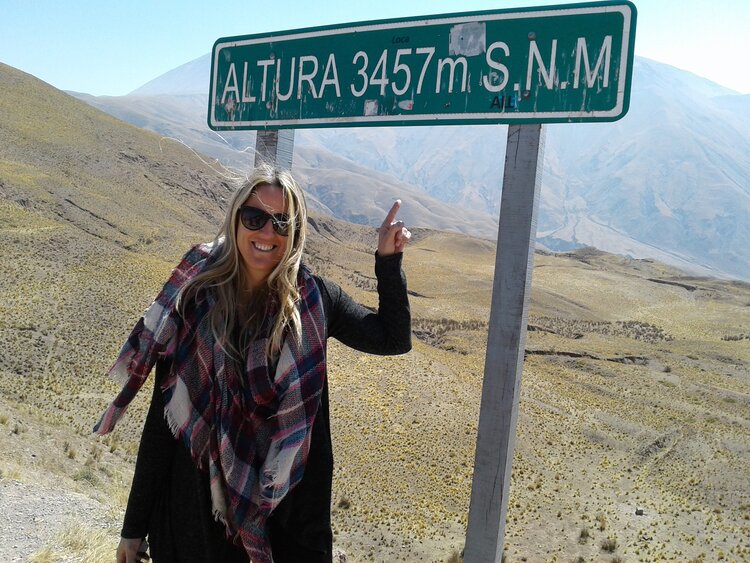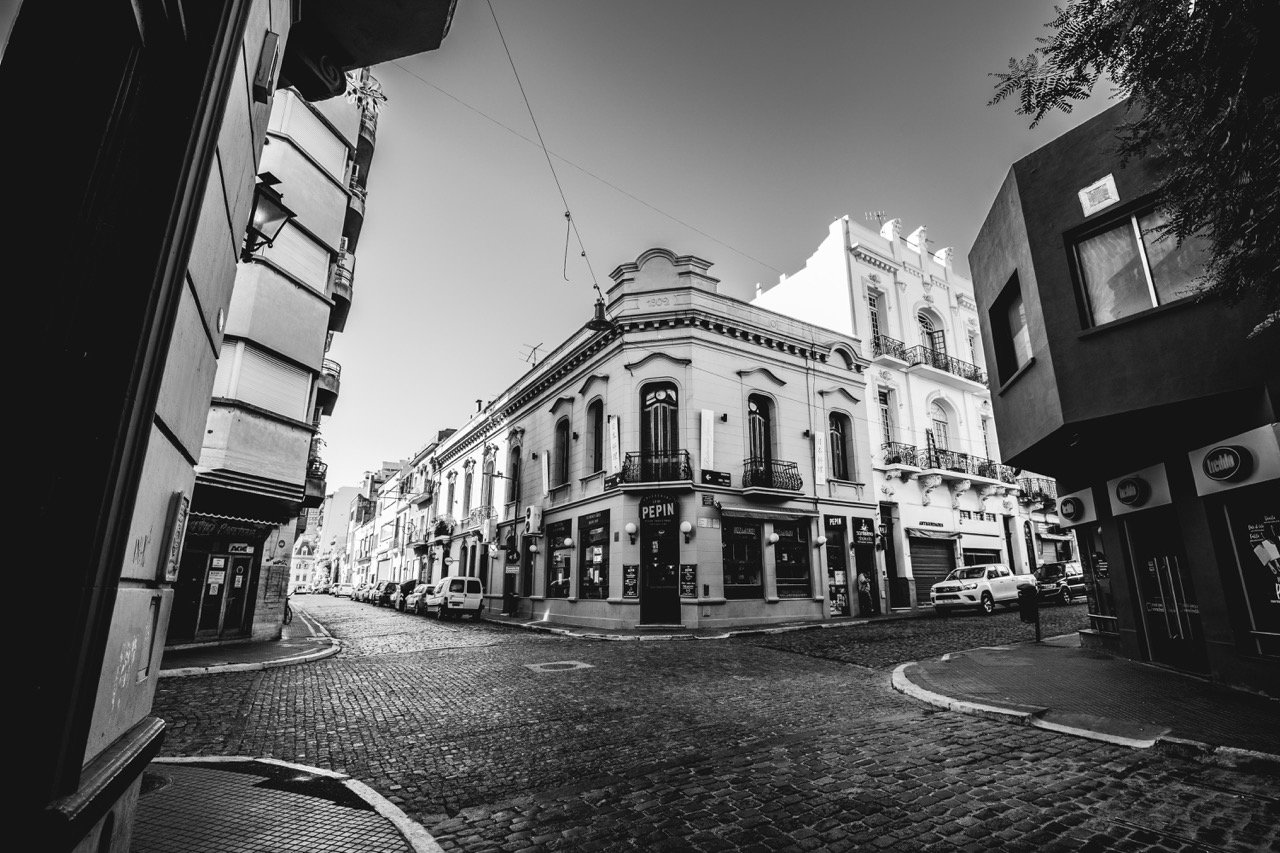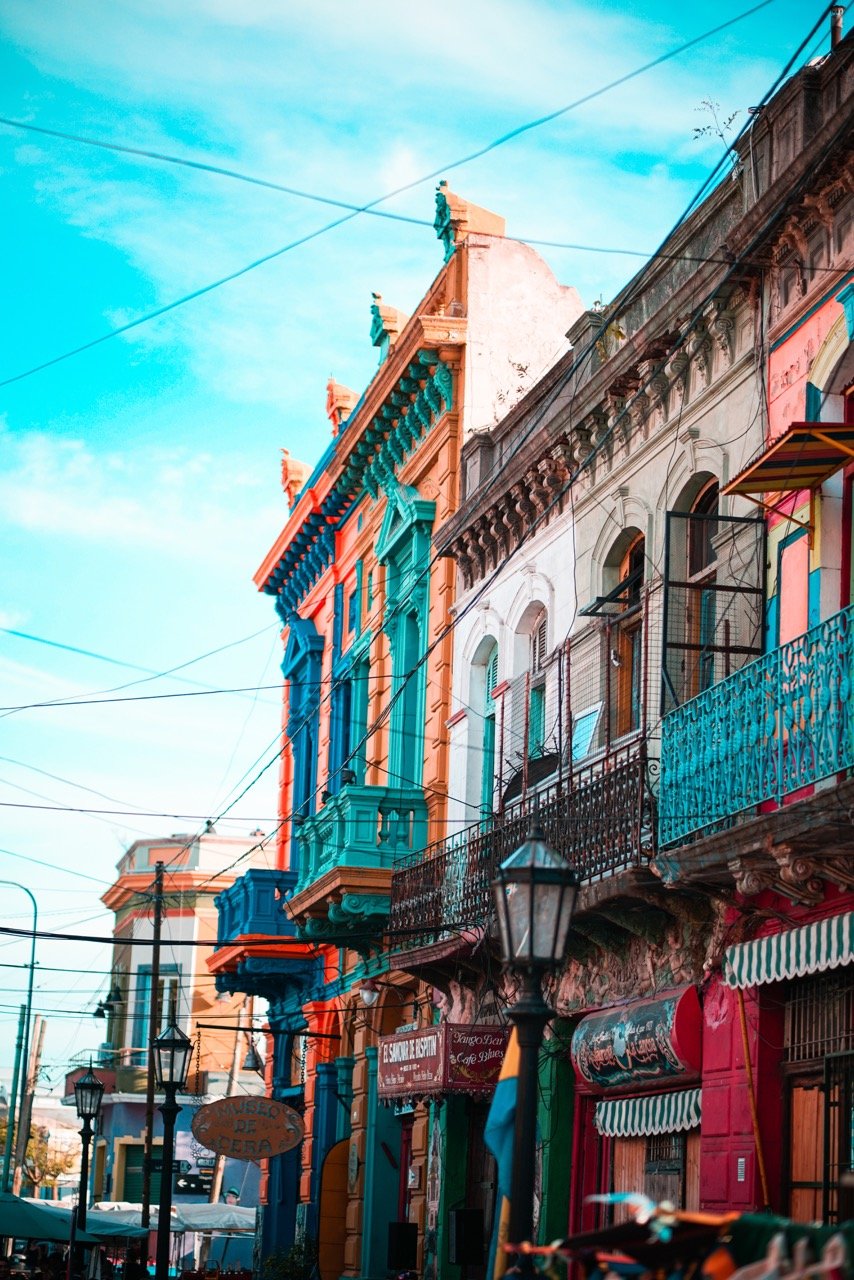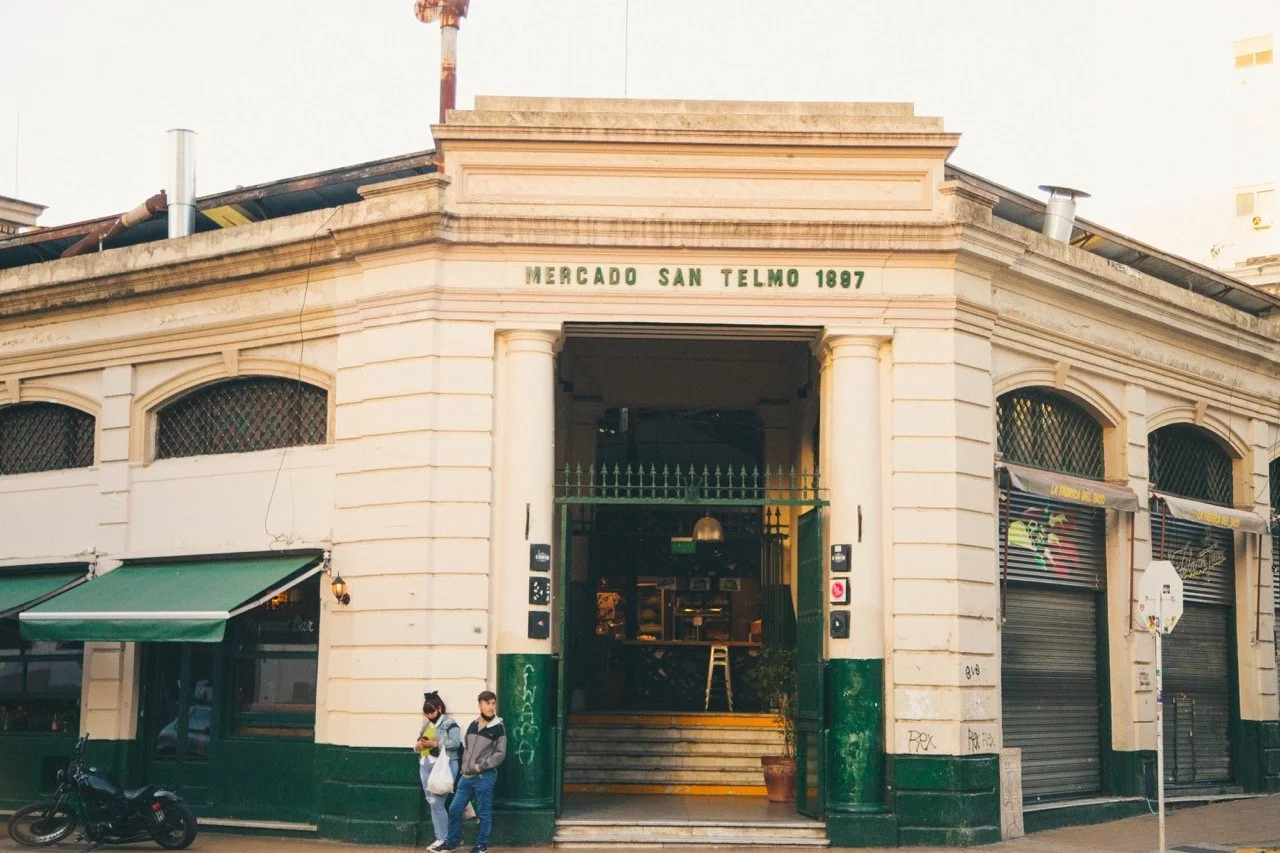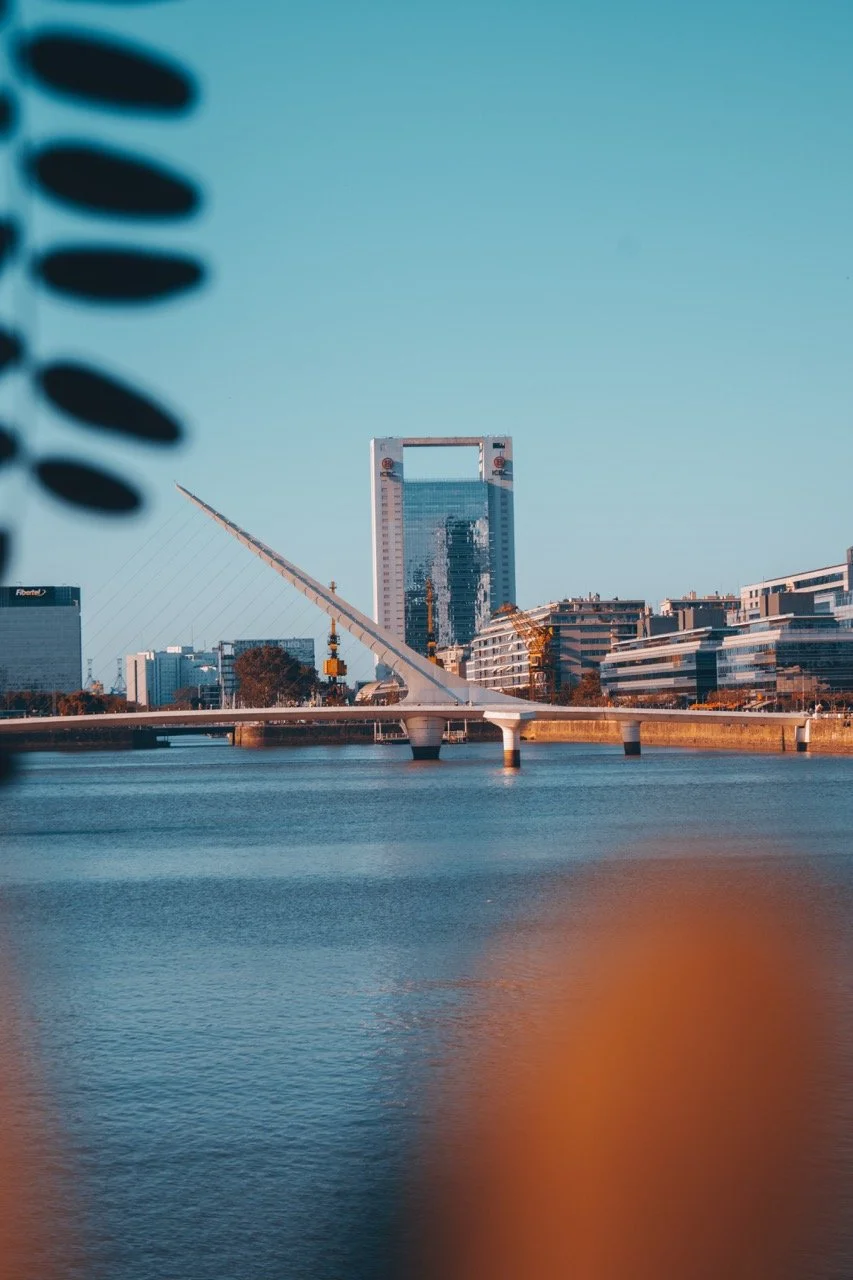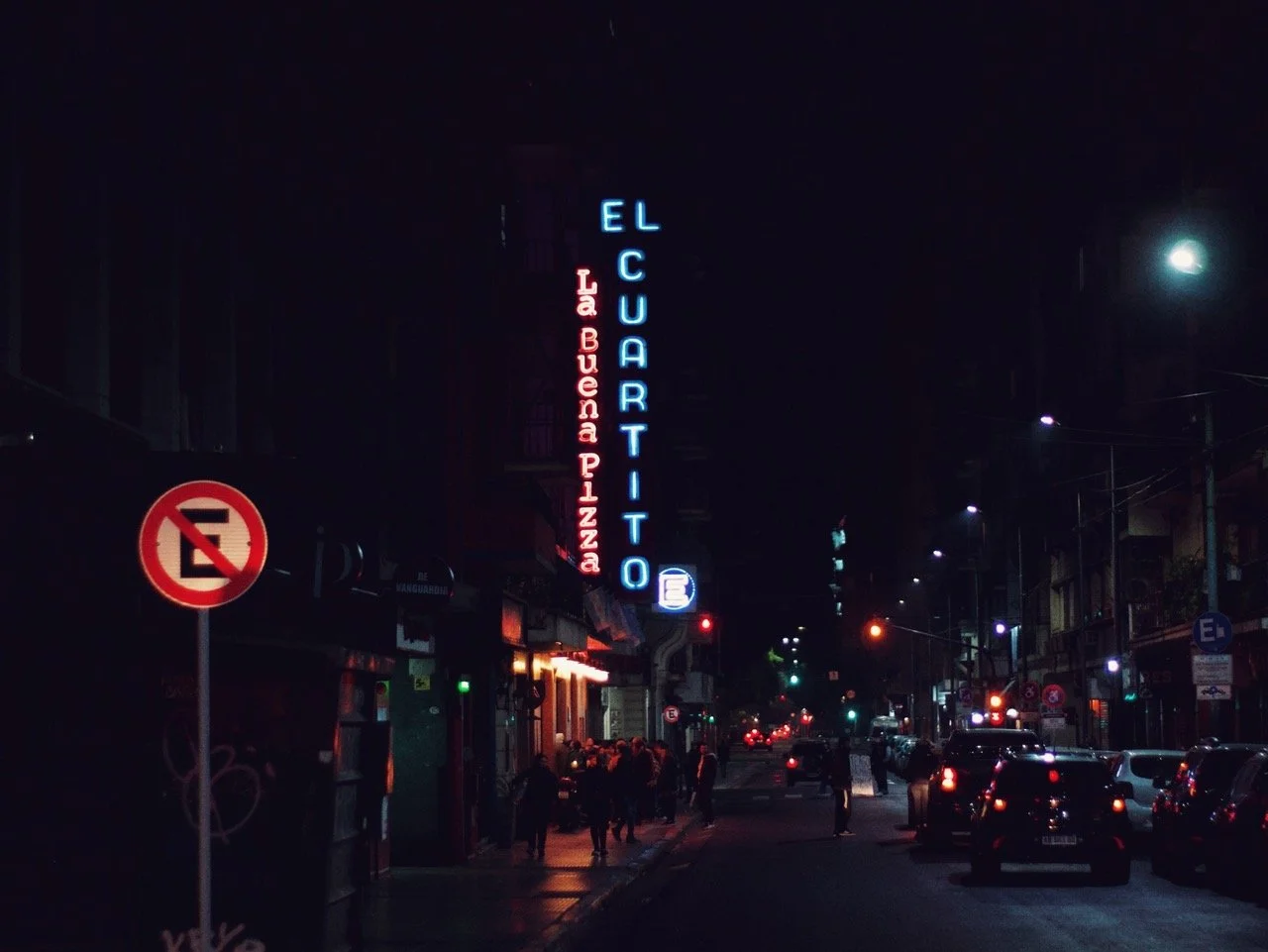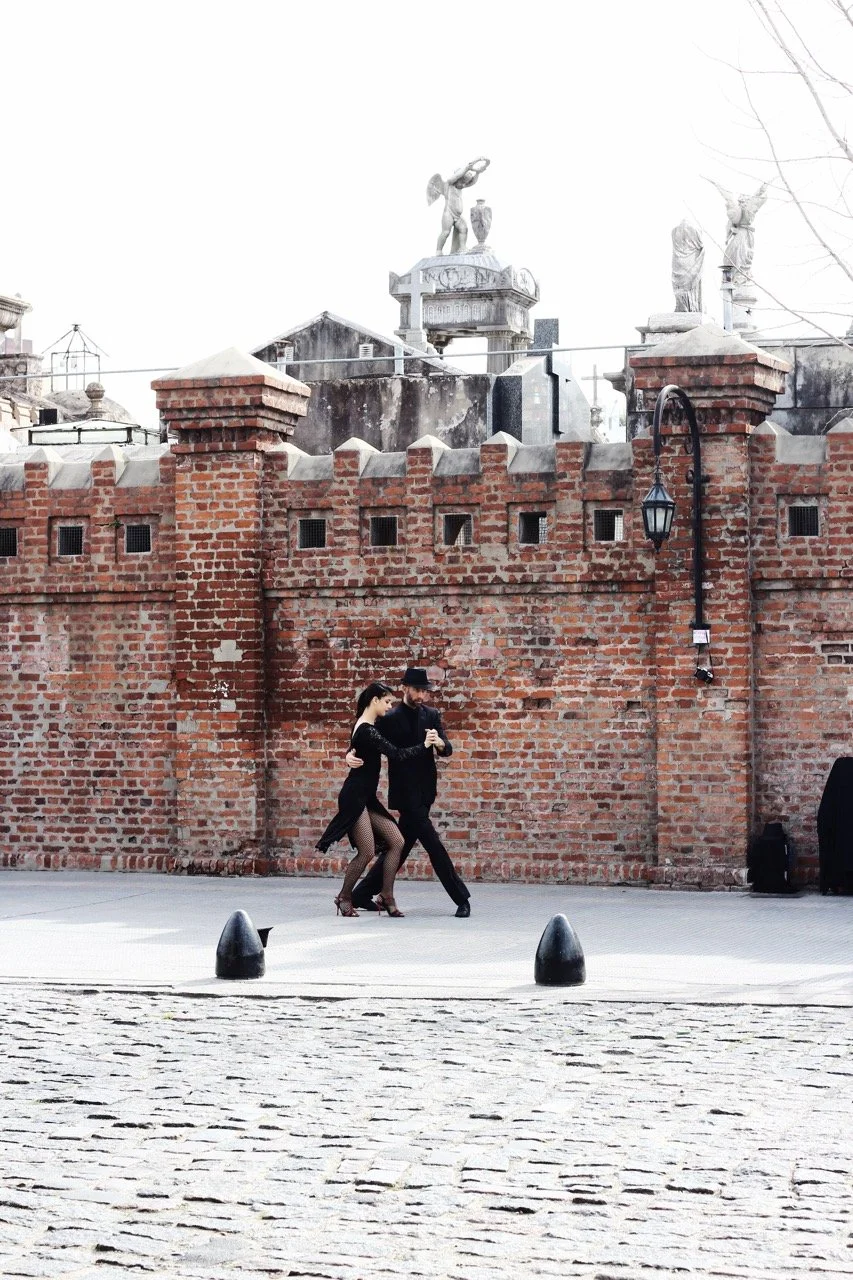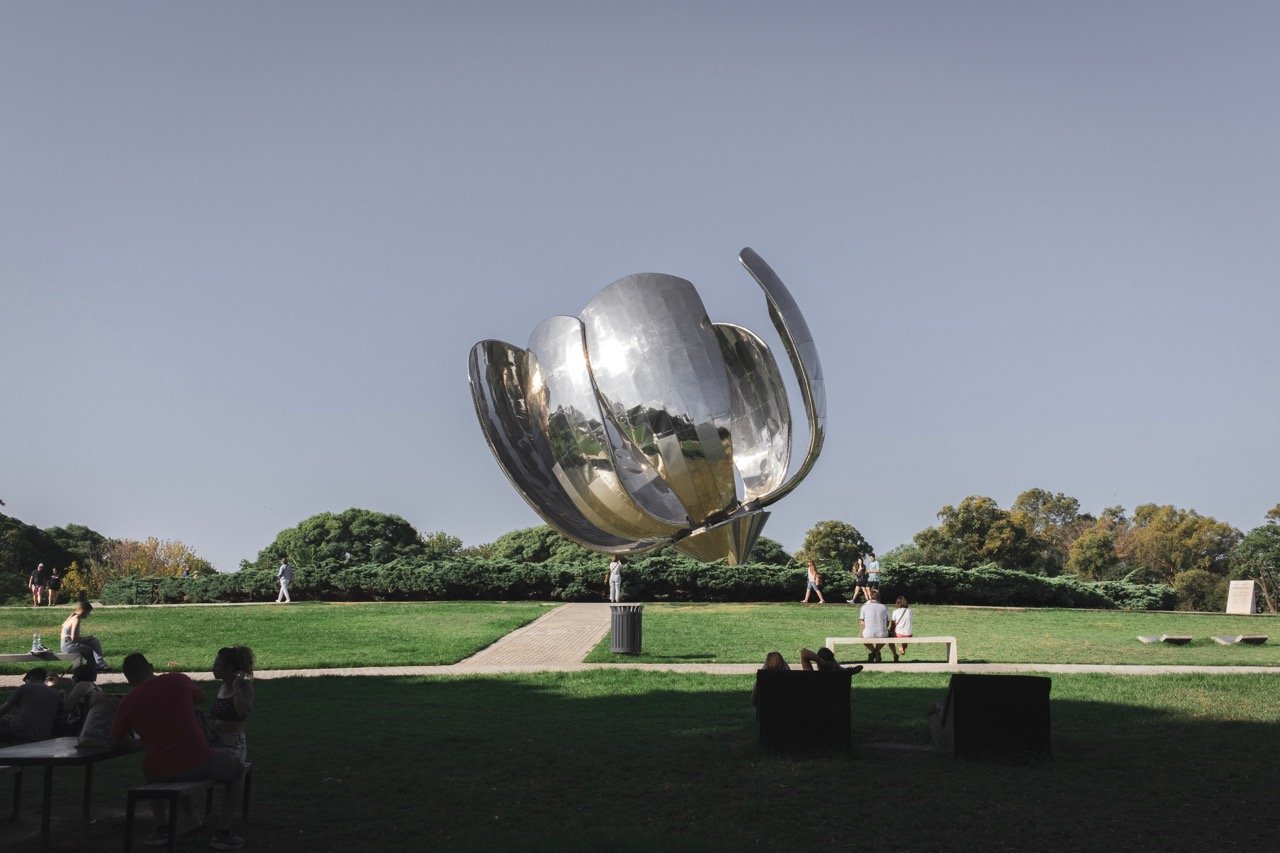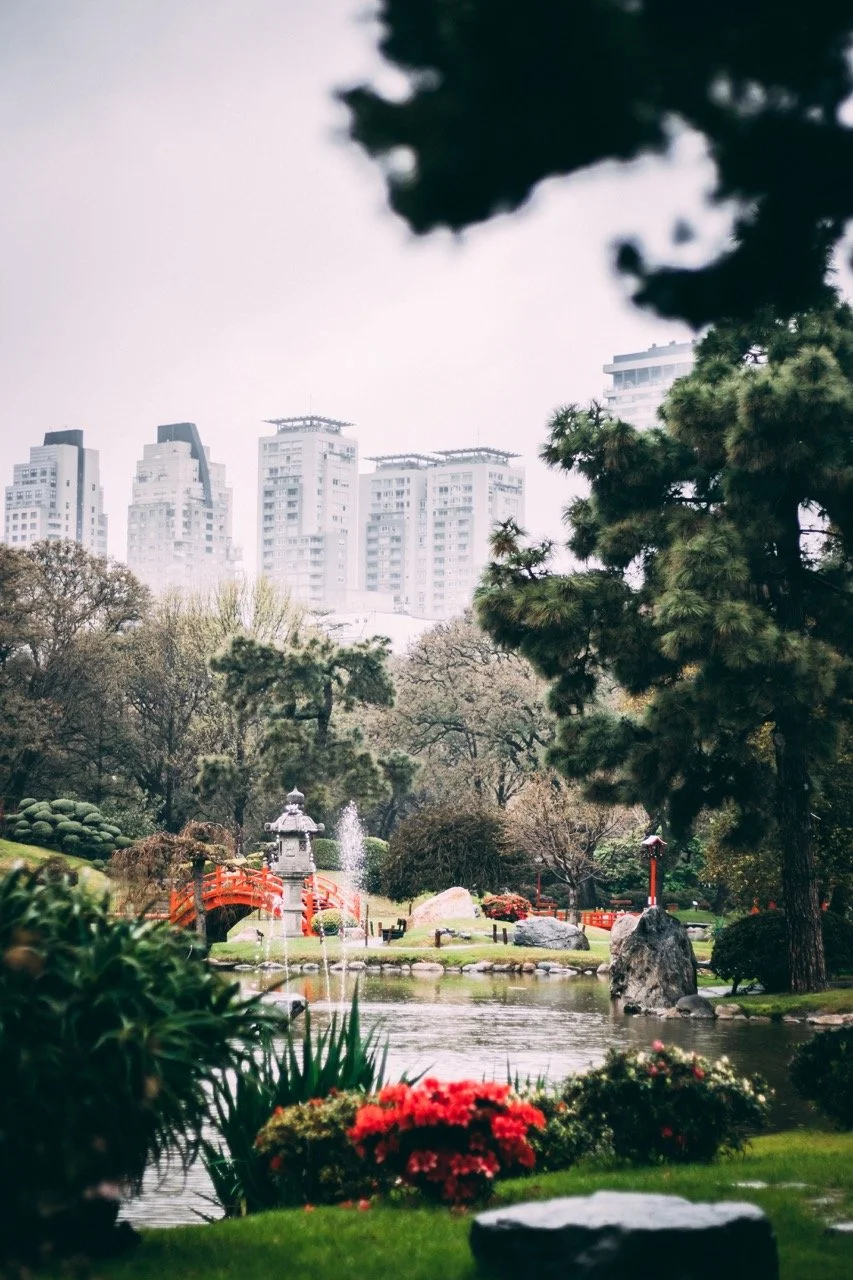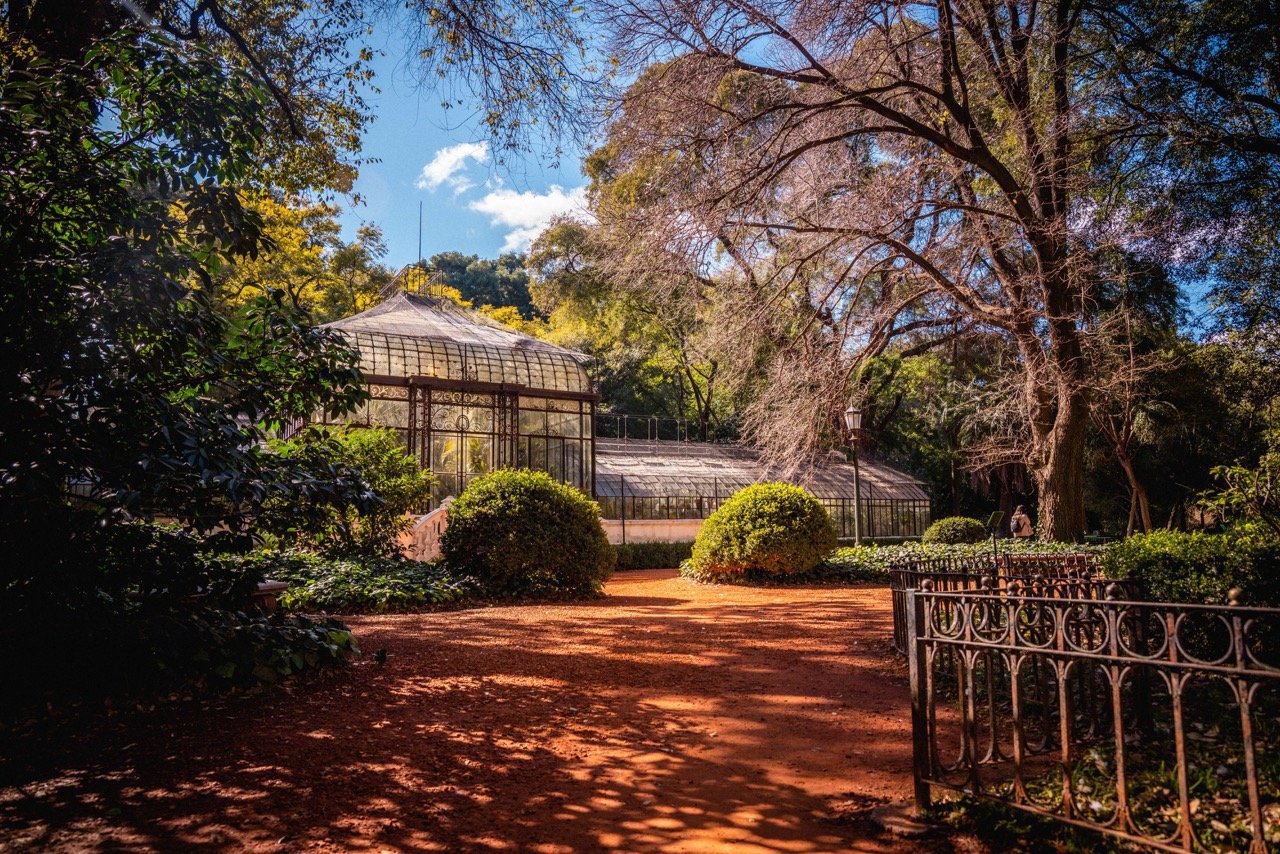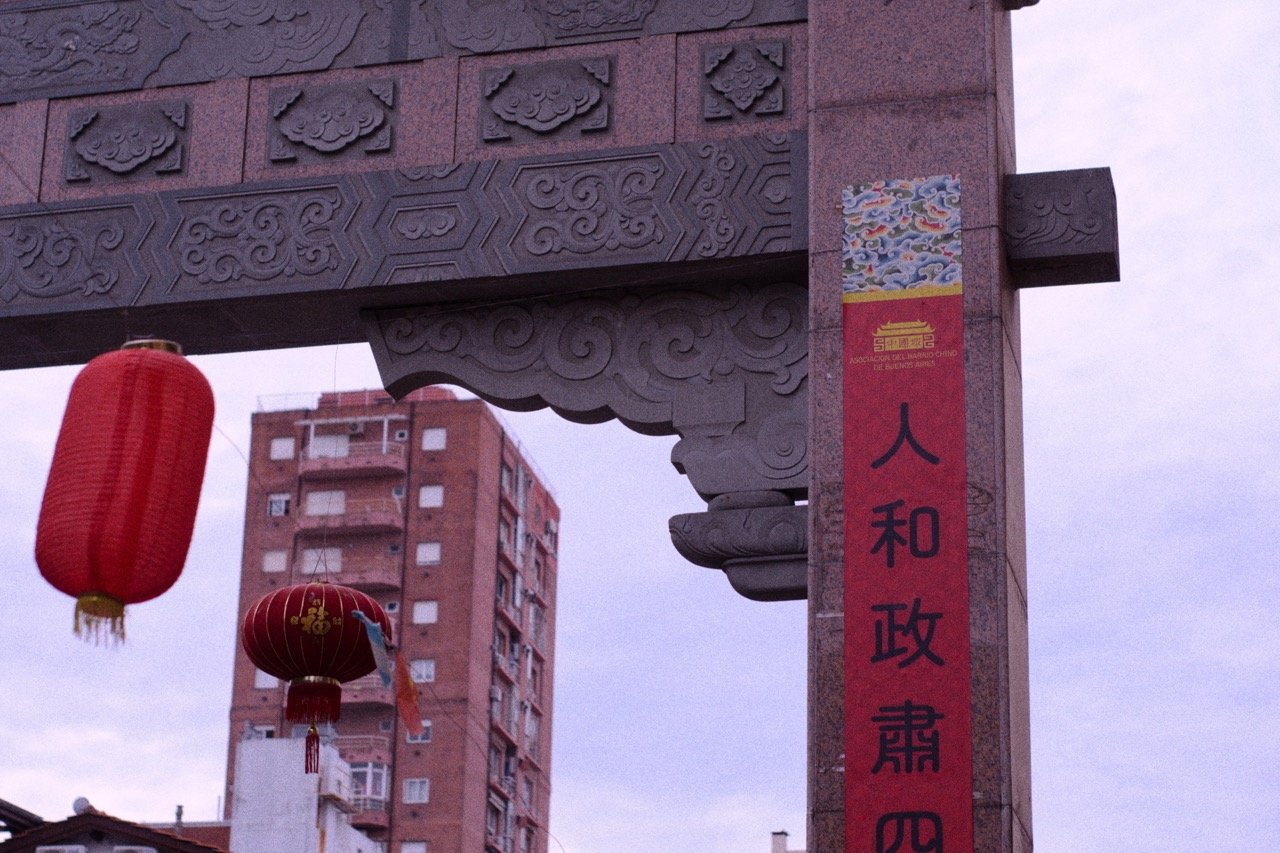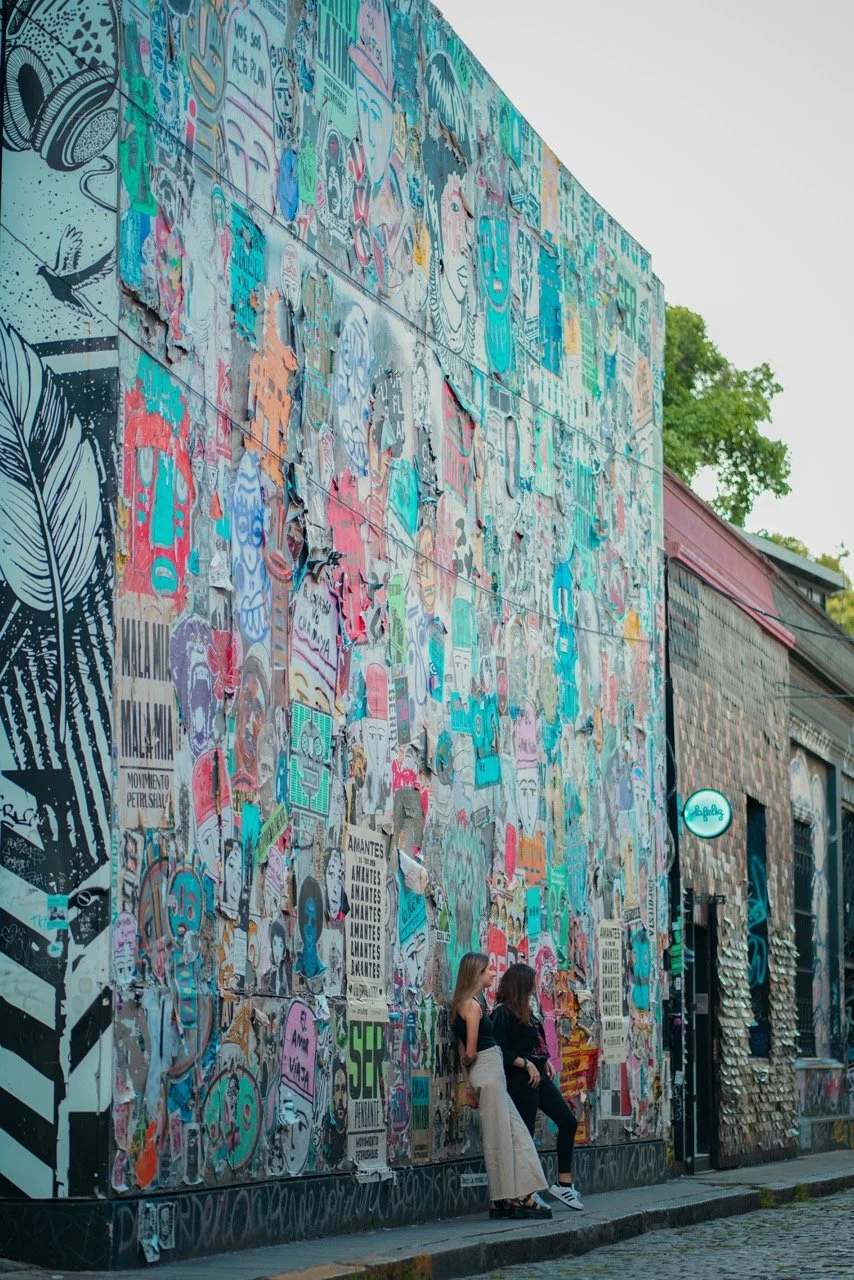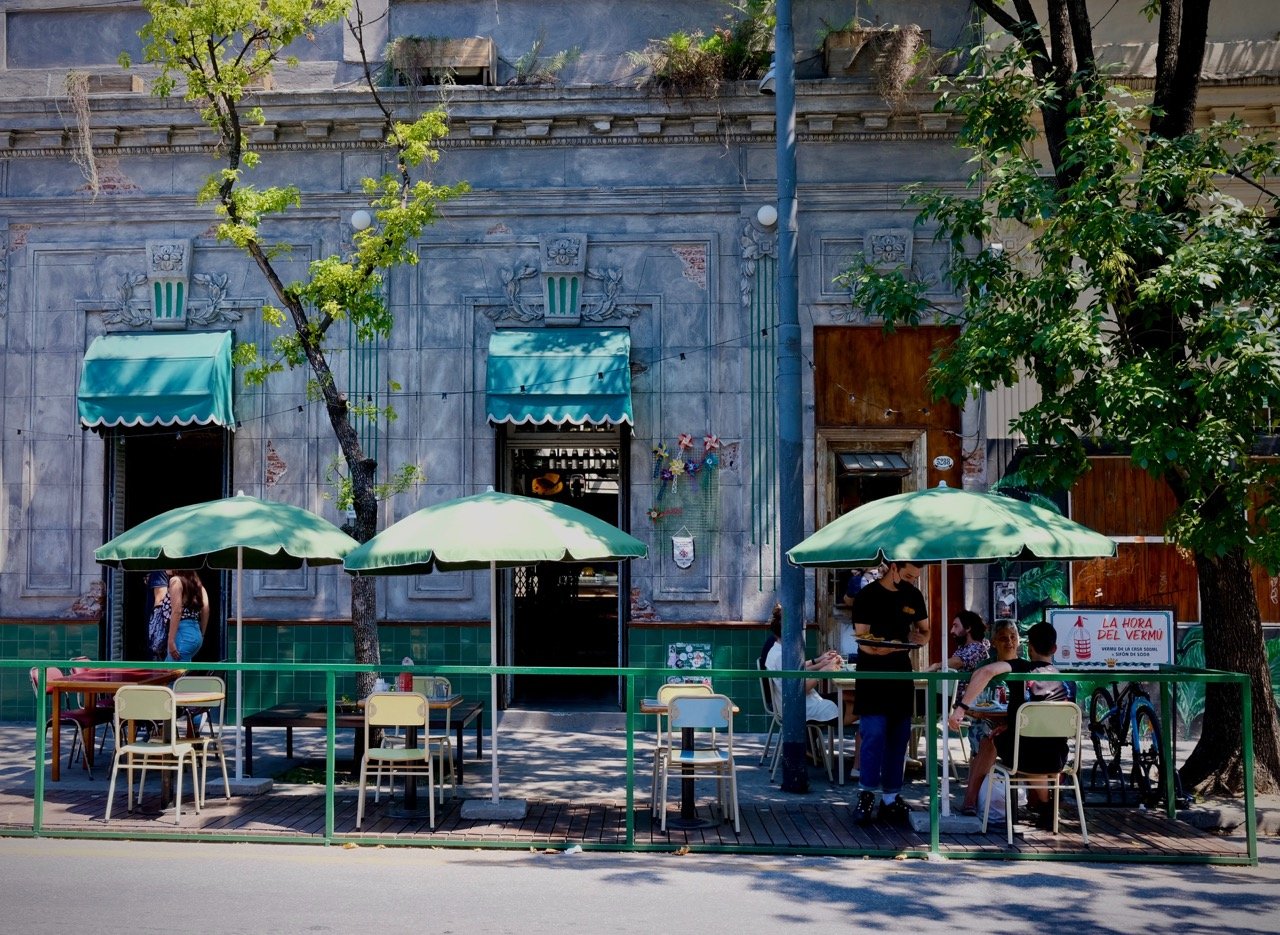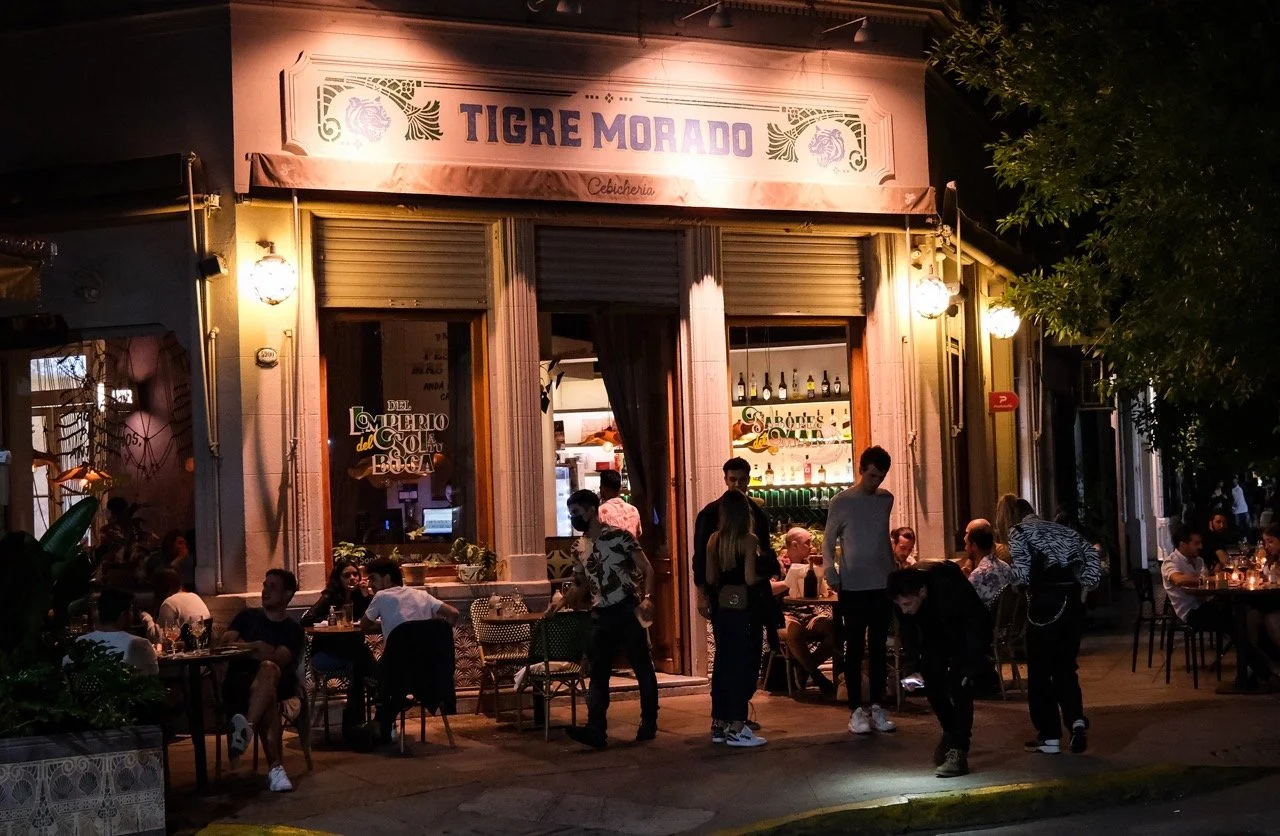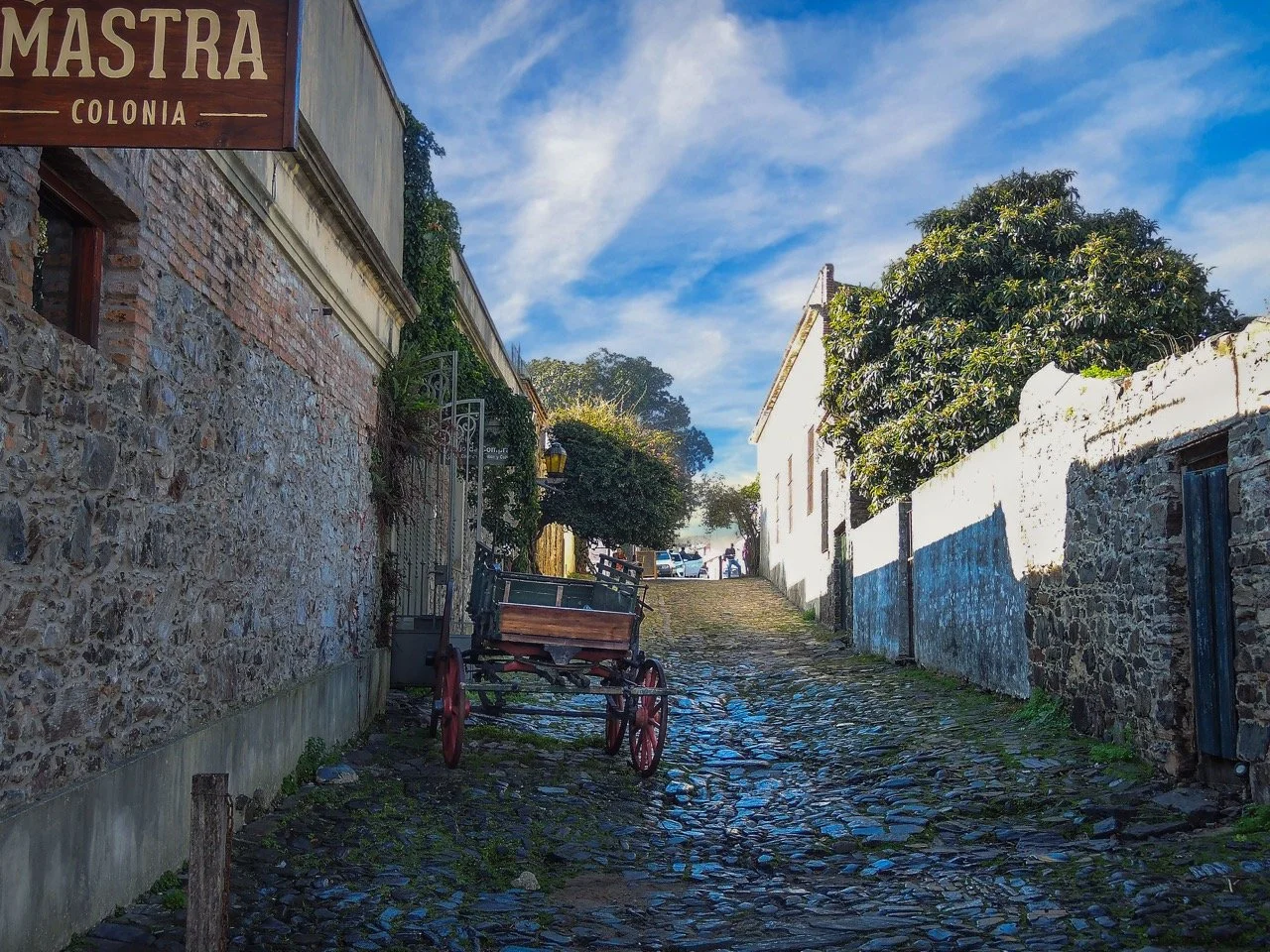A Local's Itinerary for 4 Days in Buenos Aires
Welcome to Buenos Aires, my home city and Argentina’s captivating capital. Bs.As. (as we like to abbreviate it) is a dynamic metropolis with rich history, vibrant culture, and an always resilient populace.
With its European-inspired architecture, wide boulevards, and bustling street life, this cosmopolitan city offers a unique blend of old-world charm and modern allure. A beautiful city that has a bit of everything, Buenos Aires is renowned for her distinct neighborhoods, each with its own character and charm.
Beyond the plethora of cultural offerings and beautiful architecture, Buenos Aires also entices with a fabulous culinary scene. Our steak and asado (bbq) is world famous, but the gastronomic treasures go far beyond! And for anyone with a sweet tooth, you’ll be pleasantly surprised by the amazing ice cream culture here, where ice cream joints stay open until 2 AM, selling some of the best “helado” on the globe.
With so much to see, do, and eat, a 4-day trip needs to be well-planned to help you get the most out of your visit. So, this is a packed itinerary which will let you cover the main sights, discover some hidden gems, and eat your way through my city.
Que disfrutes mucho! Enjoy!
More Argentina travel info
If you could use some help planning your visit to Argentina, schedule an Argentina travel consultation with me!
Table of Contents
Things to know when planning your visit
A brief introduction to Buenos Aires’ main neighborhoods to explore
Day 1 - Microcentro, La Boca, San Telmo, El Zanjon, Teatro Colon, Pizza, & Ice cream
Day 2 - Recoleta, Museums & Culture, Almagro, & Tango
Day 3 - Palermo, Villa Crespo, Belgrano, Barrio Chino, Horse Races, & Speakeasies
Day 4 - Day trip to Colonia del Sacramento or Tigre river delta
Buenos Aires planning cheatsheet
 Plan your itinerary with expert advice
Plan your itinerary with expert advice
- Book an Argentina travel consultation with a local expert
 My favorite hotels in Buenos Aires
My favorite hotels in Buenos Aires
- Intersur Recoleta - lovely 4-star option in leafy Recoleta. $200/night
- Magnolia Hotel - upscale, but bohemian in the heart of Palermo Soho. $200/night
- SuMa Recoleta - Modern and ideally located in Recoleta. $100/night
- Modern Apartments - 1-3 bedroom apartments in Puerto Madero. $100+/night
- L'Adresse Hôtel Boutique - funky, boutique hotel in San Telmo. $70/night
 Guided tours and activities
Guided tours and activities
 How to get around
How to get around
- Car rentals with DiscoverCars
- Metro and bus at Subte
- Taxis & rideshares with Uber, Cabify, and Didi
- Long distance buses through Omnilineas and BusBud
- Airport transfers from Welcome Pickups
Plan your itinerary with local help
If you could use some help figuring out a great plan for your trip, schedule an Argentina travel consultation with Maria, our Buenos Aires-based Local Expert!
These are one-hour Zoom calls where you’ll get to chat with Maria about the trip you’re planning and she’ll share her tips and advice, answer your travel questions, and help you perfect your itinerary.
Things to know when planning your visit
Public transportation
For the most part, public transportation in Buenos Aires is excellent and affordable, and you have buses and subways everywhere you’ll want to go. Getting a Sube transport card is imperative.
Taxis & Uber
Additionally, taxis or ride-sharing services like Uber or cabify are abundant and can be used to move between different locations when public transport isn’t convenient or desirable. Petty taxi scams, while not as common as many would have you think, do occur so you should read up on them and be vigilant.
Credit cards
While credit card acceptance is becoming more widespread, cash is still king in Argentina, so always have enough cash on you to pay for your activities and meals. Dollars are accepted some places, but you need to have Argentina pesos.
Credit card companies like Visa and Mastercard will typically convert ARS to USD at close to the dolar blue rate, though you will usually get a slightly better rate by exchanging dollars and paying cash.
ATMs
Using ATMs is extremely expensive - fees can be as high as 10% of your total withdrawal - and each withdrawal is limited to the equivalent of between 100 and 200 USD. The costs add up quickly.
To avoid the hassle and expenses, bring USD cash with you and change it at local money exchanges. 100 dollar bills are always preferred at exchanges, and you’ll get the best rate when using them.
Dólar blue & exchanging dollars
The “dólar blue” is technically the unofficial exchange rate in Argentina, but it is the one that you will usually encounter, even in official exchange houses. The blue rate can be almost double the official rate, so be sure to check in advance.
Opening hours for sights
It's essential to check the opening hours and availability of attractions, museums, and restaurants in advance, as they often change. And don’t rely on Google Maps - call ahead and confirm.
A brief introduction to some of BA’s main neighborhoods to explore
The historic heart of the city, known as the Microcentro, boasts iconic landmarks such as the grand Casa Rosada, the fabulous Teatro Colón (one of the world's most renowned opera houses), and the famous Obelisco.
You’ll find bohemian spirit in San Telmo, a neighborhood filled with antique shops, charming cafés, and live tango on countless street corners.
La Boca, with its vibrant colors and passionate soccer culture, is home to the famous Caminito street, where artists and dancers abound and grill masters cook up choripan all day long! While most visitors make a beeline for Caminito and then leave, the neighborhood has much more to explore.
Palermo, which comprises Palermo Hollywood, Palermo Soho, Palermo Chico, and a couple of other “mini barrios”, is home to beautiful parks, great shopping, fantastic restaurants (both local and international), and the city’s best nightlife.
Recoleta is an elegant residential neighborhood just outside downtown with grand buildings, tree-lined streets, leafy squares, and many terrific cafes and restaurants. The city’s famous Cementerio de la Recoleta (Recoleta Cemetery) is right on the neighborhoods border with Palermo.
You can get between all of these areas on foot and by public transportation (all you need is the blue Sube card which you can find in Retiro station), so get ready to hit the street and start moving.
While these are just a few neighborhoods in a city that begs you to explore them all, they’re where you should focus on if this is your first time visiting. You can explore deeper on your next visit!
For more in-depth info, check out my Buenos Aires neighborhood guide.


Day 1: The city’s historic neighborhoods and main monuments
A quiet corner in San Telmo
Morning
Start your day with a great breakfast at Nuna & Co.
For a real Argentine breakfast, Nuna & Co is definitely the place to eat a medialuna (an Argentinian take on the croissant). They have the simple buttery one called manteca, which is a must try, and then also frosted and cream-stuffed ones. If you’re unsure which to get, do like I do and get them all! This is my favorite spot in the center and it seems others would agree as they’ve been awarded the best medialuna in Buenos Aires a few times!
If you are someone who really loves breakfast and you want a more substantial meal, then I would recommend Flat&White near downtown. They have lots of great options and it’s one of my go-to’s for a good, but quick breakfast.
Stroll down Avenida Florida to the Plaza de Mayo
After that delicious breakfast, walk 3 blocks to Retiro station where you can buy and charge your Sube card for public transportation. Outside of the station you have Torre Monumental where you can go to the top for a beautiful view!
Sube card now in hand, go for a stroll down the famous Avenida Florida to admire the beautiful architecture all the way to the Plaza de Mayo, one of the city’s main squares. A beautiful plaza in front of the famed presidential palace La Casa Rosada, the architecture all around you is some of the best in the city.
The Casa Rosada
La Boca neighborhood
From here, you’re in the perfect location to take a bus to La Boca. Buses 29 and 64 will take you directly to Caminito. If you’re not up for public transport, you can call an uber or hail a taxi.
A little pro tip for your visit to La Boca is to make sure Boca Juniors doesn't have a home game scheduled close to the hour of your visit. If there is a game, plan to visit at another time as things will be super crowded and very chaotic. Or if this sounds like your type of fun, go for it!
Once in La Boca, spend an hour or so exploring the colorful streets and alleys of Caminito. Visit the Fundación Proa, a contemporary art museum, and immerse yourself in the local art scene.
Football fans should visit La Bombonera, Boca Juniors storied stadium, for a tour or at least a visit to the exterior.
For a great tour of La Boca’s best street art, check out my Urban Art Walking Tour.
Caminito in the La Boca neighborhood
Afternoon
Grab lunch at Mercado San Telmo
If you're starting to get hungry, you could head to San Telmo, one of the oldest neighborhoods in Buenos Aires, for lunch at mercado San Telmo, a local market filled with different vendors and restaurant stalls. It’s very touristy, but still a must-visit and a genuinely great spot to have lunch.
Once inside, the sheer number of options can feel rather overwhelming. Here are two of my favorites: if you're not so hungry and want to try a local choripan then La Choripaneria is the spot. If you’re on the hungrier side of the scale and are feeling like trying some of that steak you've been hearing about, then I’d recommend Lo Spiedo.
If you want a calmer experience than the market, you can find the same food recommendations at standalone restaurants 2 blocks away. Head to Parilla La Brigada for steak and La Parri for Choripan.
The San Telmo Market
Explore colonial San Telmo
Walk off your lunch by strolling through the cobblestone streets of San Telmo. Browse some antique shops, and enjoy the lively atmosphere at Plaza Dorrego.
After you’ve had your fill of thrifting and flea shopping, walk over to the El Zanjon building and go on a guided tour of this historic treasure. The building was painstakingly restored over 20 years and now gives visitors a view into a Buenos Aires of centuries past.
Wandering the underground tunnels and learning about the history and development of Buenos Aires is a perfect way to gain a better understanding of this metropolis. Tours in English happen at 12, 2:00 pm, and 4:00 pm every day. Call ahead to arrange a private tour.
Discover modern Buenos Aires in Puerto Madero
From San Telmo, head towards the ultra new Puerto Madero neighborhood, passing by La Casa Rosada again, and making sure to walk past the beautiful Centro Cultural Kirchner.
Your destination is Luccianos for an ice cream/coffee/cake break. Grab a treat to go and then go for walk over the iconic Puente de la Mujer bridge into Puerto Madero.
Puerto Madero has a fabulous nature preserve, but it’s very big and deserves more time to explore, so save it for another day (or your next visit). Have a look around the modern neighborhood before taking a break at your hotel or elsewhere for some relax time.
Puente de la Mujer (Women’s bridge) in Puerto Madero
Evening
Teatro Colon Opera House
In the evening, head to the famous Obelisco and enjoy the bustling Avenida 9 de Julio street, one of the widest boulevards in the world.
From here, meander over to jaw-droppingly beautiful Teatro Colon opera house. Make sure to walk all the way around the building so that you can see the front side and the beautiful park in front of it all lit up at night. You can purchase a spot on a guided tour of the opera house to see the opulent interior, but my recommendation is to instead purchase tickets to a show.
The opera would be ideal, but you can also see the Buenos Aires philharmonic play here. Even if you don’t have time for a full show, standing room only tickets will often cost you less than the price of a tour, so you can pop in for 15 minutes, have a look and soak up the ambience, and then carry on. See what’s on the calendar and buy your tickets here.
More downtown sights
If a little bit of Argentine politics or more architecture sounds appealing, walk a few blocks north to the impressive Congreso de la Nacion (National Congress building). On your way, stop off at the Palacio Barolo building which is an Art Deco masterpiece with a very interesting history that ties in with Dante’s Divine Comedy.
For those interested and with time to spare, you can do a guided tour of Palacio Barolo and enjoy a stunning sunset from the top floor “lighthouse”. There’s also a great rooftop bar.
The Teatro Colon opera house
Grab a slice at a historic pizza spot
As it’s your first day in Buenos Aires and I imagine you’re not quite ready to hold out until an Argentine-timed dinner (we regularly eat dinner at 10 or 11 pm), I suggest grabbing a bit right now.
Nearby, you have your pick of two fantastic and historic pizza houses which have continuous opening hours and can accommodate an early meal. Prepare for what is most likely the cheesiest pizza you’ll ever eat.
You have 2 fantastic options nearby, both of which are very close to each other and both of which are among the city’s most famous pizza joints. Pizzeria Guerrin is the more famous of the two while El Cuartito is the older.
I recommend Guerrin - their napolitana is delicious and it's a great experience. Check the seating area in the back and you’ll feel as if you’ve gone 70 years back in time. If you're having slices only, then you can have it at the bar/counter.
If you’re a soccer fan, El Cuartito will probably give you a thrill. If you go there, order one of their draft ciders to wash down your pizza.
El Cuartito Pizza
If on your first night in Buenos Aires you’re thinking, “Pizza?! I came here for the steak!”, fret not. Nearby, Parilla Peña has been dishing up fantastic grilled meat for decades. Once a neighborhood hidden gem, this spot has very much been “discovered”, so make a reservation if you want to be sure to get a seat. Prices are still reasonable and the atmosphere and menu is as authentic as ever, despite the attention.
Regardless of where you end up, resist the temptation to totally stuff yourself on pizza (or steak), because you need to leave some space for an astoundingly good ice cream!
Ice cream at Cadore
Dubbed top 10 in the world according to National Geographic, Cadore is an ice cream lover’s dream. Their pistachio is a must! If you can’t decide what to get, don't be shy about asking to try a few flavors before choosing. Once you’re ready, you pay first and then pick the flavors. Ask how many different flavors you can opt for before choosing.
For more ideas on restaurants, check out this list of my favorite restaurants in Buenos Aires.

Explore hidden gems of the city center, gritty and colorful La Boca, bohemian San Telmo, and chic Palermo on a private tour with Buenos Aires' best guide!
Day 2: Culture and museums, leather shopping, and Tango
Tango dancers on the corner in front of Recoleta Cemetery
Morning
Recoleta Cemetery
Being your day day with some delicious empanadas in the Recoleta neighborhood at a great local spot called Leña - Pizzas y Empanadas. I always recommend carne cortada a cuchillo, jamón y queso, and the delicious caprese.
Now that you’re fueled up for the day ahead, you’re ready to set out for the famous Recoleta cemetery, which is just 4 blocks away. Entrance is free, but you can also do a quick guided tour if you want to fully understand what (and who!) you’re seeing.
If you want a tour guide, there is always someone hanging out at the entrance. Spanish guided tours are often free, whereas you might have to pay for the English ones. You'll need at least 1 hour to enjoy the cemetery.
After you’ve explored the cemetery and enjoyed the gorgeous mausoleums, quickly drop by the adjacent mall for some delicious chocolate from the Patagonia region. This is the only shop in Buenos Aires that sells it and it is seriously good stuff. Ask for Mamuschka on the third floor and thank me later!
Cementerio de la Recoleta
Museo Nacional de Bellas Artes
From the cemetery, your next stop is the Museo Nacional de Bellas Artes. On your way over, be sure to stop at Plaza Francia square (which has a nice crafts fair on weekend mornings) and also visit the iconic Floralis Genérica flower sculpture.
The fine arts museum houses one of the largest collections of works in Latin America and is a must-visit even for those with only a passing interest in art. It’s also free, so you don’t have to feel bad if you just pop in for a quick visit. There’s also a lovely cafe & restaurant just outside the entrance.
Museo Nacional de Arte Decorativo
Double down on your art/culture day and head to the Museo Nacional de Arte Decorativo (also free) for a look inside the former mansion of a wealthy family that now houses an interesting collection focused on pre-20th century European interior design. It’s a small collection, so even a half hour look around could be enough.
Architecture buffs should make some time to wander the neighborhood and admire at the Palacio Duhao and the Alvear Palace Hotel. To contemplate your surroundings and people watch, I love just sitting on the park benches in the leafy Plaza Vicente López y Planes square nearby.
If you’re in the mood for some shopping, there are two excellent leather stores in the neighborhood. Neither is cheap, though they’re very reasonable by North American or European standards, and the quality is fantastic. Guido Mocasines makes terrific shoes and Rossi and Caruso makes great clothing, jackets, shoes, and bags.
The Floralis Generica sculpture in Recoleta
Afternoon
Seafood lunch at José Luis Restaurante
After all that hard work, you’re probably starting to feel the rumbles of hunger. Don’t worry, I didn’t forget! For an elegant meal in a refined setting, José Luis Restaurante has been serving terrific quality seafood for decades and is just a few blocks from the cemetery. Don’t order the steak - this is primarily a seafood spot.
If you haven’t scratched your parilla itch yet, a good local spot for meat is Don Hilario. Skip the mixed grill options and order a specific cut that you like.
Alternatively, if you’re not a fan of pescado and mariscos (booo!) and bbq isn’t what you’re looking for either, just head over to Plaza Serrano in the Palermo neighborhood where you will find hundreds of options from modern Argentine to every manner of international food.
Relax in the tranquil Jardín Japónes (Japanese Garen)
Rejuvenated after your meal, it's time to get back on your feet and walk some more. In Buenos Aires, merely wandering is one of the city’s greatest pleasures!
Assuming you decided to eat in Recoleta, we’re headed to the Jardín Japónes (Japanese garden), a beautiful garden situated in the middle of the city, that lets you explore a bit of Japanese culture right in Buenos Aires.
You’ll walk through the leafy and elegant Palermo Chico neighborhood on your way there, a favorite area for Argentine celebrities.
MALBA
After the Japanese Gardens, the MALBA (Museum of Latin American Art of Buenos Aires) is just a stone’s throw away. Note that the Japanese gardens close at 17:30 and the MALBA is open til 20:00.
Or, iif you’re not up for another museum, skip MALBA altogether and make your way straight for the tree-lined streets of Palermo Hollywood and Palermo Soho.
These two neighborhoods are some of the trendiest in Buenos Aires and are perfect for shopping, people watching, or just wandering around. With endless cafe, cocktail, and craft beer options, you’ll have no problem wiling away the hours.
The Jardin Japones in the Palermo neighborhood
Evening
Dinner and a night out in Almagro
Ready for a night on the town Buenos Aires style? A ver! We’ll see! The following plan will only work from Wednesday to Saturday, so play with the itinerary to make it work for you.
Get outside of the typical tourist areas of Buenos Aires and make the trek out to the super cool Almagro neighborhood for an asado (bbq) dinner at PARRILLA LODEFRAN. This is an authentic spot and you'll probably be the only tourists in the restaurant. Enjoy the local vibe and strike up conversation with your neighbors!
If you arrive too early to eat, check out the cultural center Nuestra América where you can enjoy book readings, poetry, live music, and all sorts of other great events showcasing local artists.
After dinner, your options for nightlife in Almagro are excellent. This is one of historical centers of Tango in the city, so if you want to leave Buenos Aires with a few dance moves, 2 blocks away you have the iconic La Catedral Club where you can take tango classes or just enjoy a drink while watching locals dance. Make sure to call ahead to reserve if you want to take a class
Not feeling Tango? Just around the block from Lodefran, you have the wonderful bar El Boliche de Roberto which almost always has live music. If bar hopping is on the agenda, you have loads of spots nearby.
If you’re after a local experience, make sure to stop by Le Troquet Henry to mingle with locals into the wee hours of the morning at a casual neighborhood mainstay.
A tango show
Day 3 - Wander the parks, plazas, and bars of Palermo
Bosques de Palermo park
Morning
Stroll through the Bosques de Palermo Park
Start your day with breakfast at Moshu Treehouse, one of my favorite cafes in the Palermo neighborhood. The food is great and the ambiance is beautiful. The red velvet cake is one of my favorite things on the menu.
Calorie loading complete, head to Paseo el Rosedal inside the Bosques de Palermo park (officially called the Parque Tres de Febrero). The rose garden (el rosedal) is especially lovely, but the entire park is a huge green oasis with lakes, ponds, athletic fields, wooded areas, and more.
A wander in the park is a peaceful way to start your day in the city and see how locals relax.
I recommend walking over to the park from breakfast because you're in the heart of Palermo so you’ll have beautiful scenery all around you. On the way over you’ll also pass by the jardin botanico (botanical garden) which is worth a stop.
The Carlos Thays botanical garden in Bosques de Palermo park
Chinatown (in Belgrano)
After enjoying the park, walk just outside the entrance to Avenida Libertador 3429 and grab the 130A bus, heading north. Stay on for 7 stops and get off at Avenida del Libertador 6133. From here, make your way to the intersection of Juramento and Arribeños streets.
You’ll find yourself standing outside a very Chinese looking arch. And that it is! Welcome to Barrio Chino, Buenos Aires’ very own Chinatown! You’re now in the Belgrano neighborhood which is an upscale residential area just after the Palermo and Colegiales neighborhoods. Spend an hour enjoying the novelty of this Latin American Chinatown.
Belgrano is also worth a wander, especially if you want to see what a nice, but mostly tourist-free residential area in the city looks like.
The entrance to Barrio Chino, Buenos Aires’ Chinatown, in Belgrano
Afternoon
Explore Palermo Hollywood, Soho, and Villa Crespo
It’s likely well into the afternoon by now, so you may be thinking of lunch. Pero ya no comiste suficiente?! But haven’t you eaten enough by now?! I kid! While you could grab some dim sum or other great Chinese food in Barrio Chino, I’d suggest heading back to Palermo for a delicious milanesa napolitana at Barcelona Asturias.
The food here is great and the restaurant is also in between Palermo Hollywood and Villa Crespo, two neighborhoods entirely worth exploring. If you have limited time, focus on Palermo Hollywood and just wander the streets. But before you leave lunch don't forget to have some dessert; I recommend a typical flan mixto.
If you want something a bit more unique for lunch, instead check out La Crespo in the nearby Villa Crespo area, which has been serving delicious Eastern European and Jewish food for over 30 years. This once humble, mostly take away spot has since moved into a new full-seating restaurant, but the quality and the heart are still there.
Wherever you eat, afterwards take a walk around Palermo Hollywood and then on into Palermo Soho, running your route past Plaza Serrano and ultimately to Plaza Armenia. Both squares, and the entire area around them, are always filled with people, restaurants, shops, bars, cafes, street art, and live music. You could spend an entire day just wandering around here. And you should!
Street art on a Palermo Hollywood side street
Taste your first alfajores at Havanna cafe
Once you’ve sufficiently explored Palermo, treat yourself to some alfajores, typical Argentina pastries. You can find alfajores all over, but there’s nowhere better to try them than at the famous Havanna cafe. Havanna is now a huge chain of cafes which can be found all over the world, but it started here and they’re the undisputed king of the alfajor. You’ll find plenty of better ones, but these will always remain a classic.
I love all the flavors, but you have to try an original maicena one. My personal favorite is the dark chocolate one with 70% cacao!!
Al fresco dining in Palermo Soho
Evening
Catch a horse race at the Hipódromo de Palermo
For a great local experience, kick your evening off by heading to the Hipódromo de Palermo (the horse race tracks) to catch a horse race. Entrance is free and you can just watch or place a few bets if you’d like. Horse races take place only on certain days (usually 3 days a week) and begin at 13:30, though the better races start after 16:00 (4:00 pm).
To check the schedule, head to the official website here. The people watching here is supreme.
After watching the ponies, it’s time for dinner. Take a break from meat and check out a great spot dishing up elevated, modern Argentine fare. Keeping it in the neighborhood, you have the fantastic bistro Las Pizarras which has a seasonal, ever-changing menu. It’s a popular spot with locals, so make a reservation well in advance.
Alternatively, you could head deeper into Palermo and go to Sarkis for some fabulous Armenian/Middle Eastern food. The line WILL stretch around the block, so get there when doors open.
Not satisfied with those options? How about South Asian fusion food at Gran Dabbang? A novelty when they opened over a decade ago, these guys have been going strong since and keep finding ways to keep their food fresh and interesting. Show up early to get a table.
Cocktails and a night out in Palermo
After dinner, get ready for a night on the town. If yesterday was Tango and bar hopping, tonight it’s time for some great cocktails! And in Palermo you are absolutely spoiled for choice. From high end clubs to hole in the walls and speakeasy style hipster watering holes, there’s something for everyone.
If speakeasy style spots that you have to work a bit to find are your style (and you don’t mind somewhat elevated prices) check out Victoria Brown Bar, Bar 878, and Nicky Harrison. A bit outside of Palermo, you also have the OG BsAs speakeasy, Floreria Atlántico. No descriptions because that would ruin the fun!
Depending on how many of these bars you visit, I’d probably recommend calling a cab to get you home tonight!
A busy bar in Palermo Hollywood in the early evening

Buenos Aires' endless urban cityscape provides urban artists with some of the largest canvasses in Latin America. Come discover it!
Day 4: day trip to Colonia del Sacramento or Tigre River delta
An old school VW in Colonia, Urugay
Colonia del Sacramento, Uruguay
Colonia del Sacramento is a tiny little colonial town in Uruguay on the opposite bank of the Tigre river from Buenos Aires. It’s an easy day trip and one of the most popular excursions from the city.
You can go on an organized tour or book on your own. Colonia is really quite small, so in my opinion there’s just no need to book a tour.
That said, I would recommend booking what is billed as a “day tour package” or “half day tour package” with the two ferry operators, Colonia express or Buquebus. When booking, make sure you’ve selected a day tour and not a normal roundtrip ticket. It seems counterintuitive, but day tours are actually cheaper than the round trip tickets.
Prior to booking also check both operators’ Instagram account for discounts as you can often find them for up to 40% off.
While technically you’ll be on a guided tour, you can just split off on your own once you get to Colonia. Just make sure to be back at the ferry terminal an hour before your departure. And don’t forget your passport!
The allure of Colonia lies in how utterly different it is from Buenos Aires. A tiny settlement with cobblestone streets and a laidback, small town air, it’s the exact opposite to Buenos Aires’ urban sprawl and glorious chaos. Wander the narrow streets, have a Uruguayan asado, slowly savor a coffee in a little square, and lounge by the riverside.
It’s actually somewhat of a relief to go somewhere where there is nothing that you have to do and no fear of missing out on anything. Just enjoy it.
For a more detailed guide, get some pro-tips from Erin over at Sol Salute in her guide to a Colonia day trip.
A typical cobblestone alleyway in Colonia, Urugay
Tigre River Delta
And if Colonia doesn’t sound like the right fit for you, then a tour of the Tigre River Delta is an excellent alternative.
Tigre sits squarely in the delta of the Parana River, formed by the confluence of the Paraná and the Uruguay rivers. A little over 20 miles from Buenos Aires, it’s one of the biggest deltas in the world and a visit here offers a complete respite from busy and bustling Buenos Aires.
The highlight for most visitors is a boat trip, which will take you past charming riverboat houses, little river islands, and lovely scenery. However, if you want to really experience the River Delta, I suggest forgetting about motorized boats and instead setting out on the river in a canoe, oars in hand!
For a fantastic and active full-day tour of Tigre and the River Delta, join me on my Tigre River Delta experience.



Maria Casiraghi
Argentina Expert based in Buenos Aires
¡Hola y buenos días! 👋
Hi, I'm Maria, and I've been a tour guide and travel consultant here in Argentina for the last 20 years. If you're looking for some local advice on your trip, I'd love to help!
Learn more Book a consultation
Explore with Maria!
